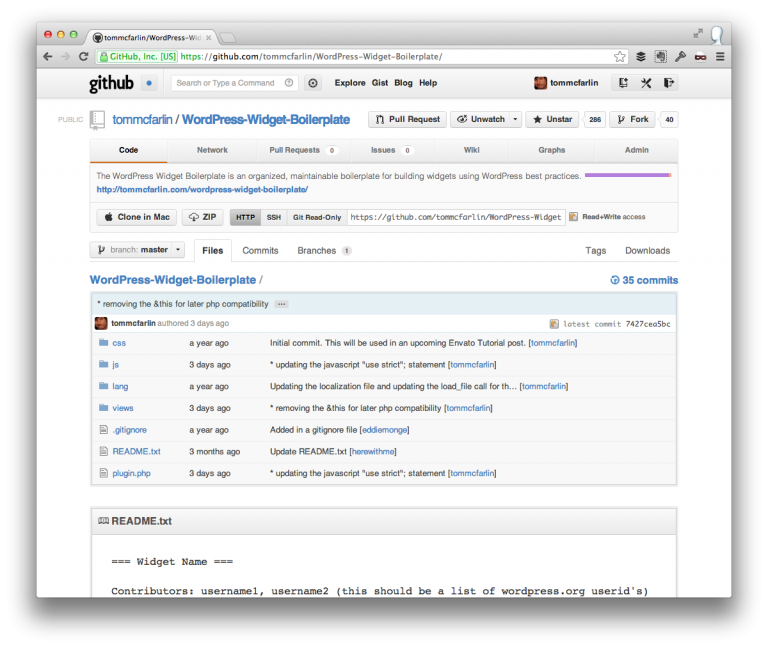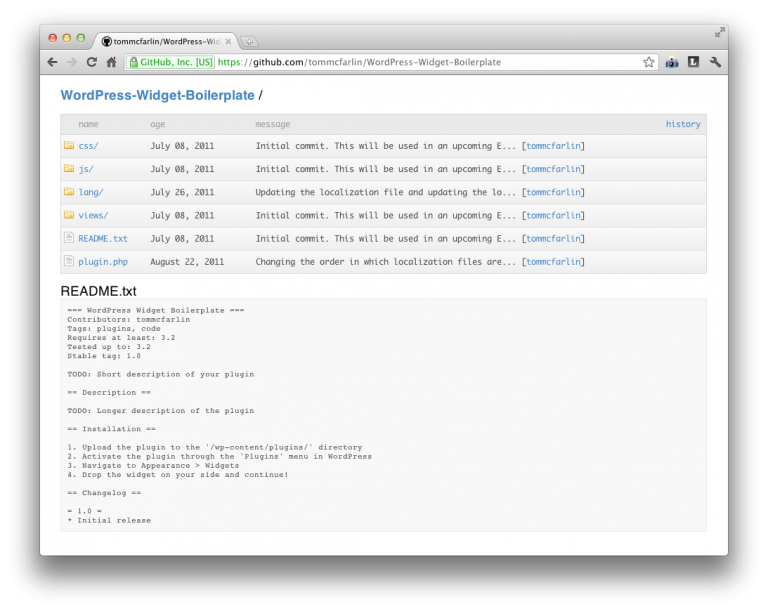Earlier this month, I mentioned that I was looking to bring the WordPress Widget Boilerplate and the WordPress Plugin Boilerplate to 1.0. Throughout the month, I received a several pull requests most of which I merged into the projects.
I made a few changes that I’ll detail momentarily, but as of right now both WordPress Plugin Boilerplates are officially tagged as 1.0 and are available in their respective GitHub repositories.




